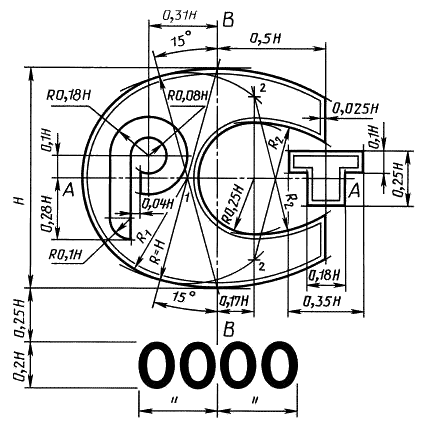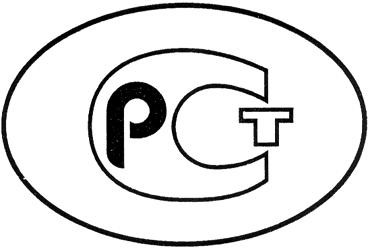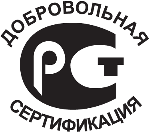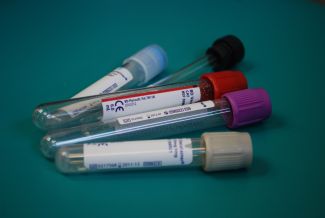
Products certified to Russian GOST standarts must be accompanied by an appropriate conformity marking. This is necessary to inform buyers of products or regulating authorities that the products are certified and thus meet the established quality standards.
Several certification markings are currently used in Russia: the system of compulsory GOST certification, voluntary GOST certification, as well as the confirmation of conformity with the Russian Technical Regulations or the Technical Regulations of the customs union between Belarus, Russia and Kazakhstan.
The conformity marking shall be affixed to the product or its packaging. It is also possible to use the marking on the attached technical documents - e.g. instructions for use, assembly instructions, - which are enclosed with the product.
The conformity marking increases the confidence of potential customers in the product and thus increases the demand. The manufacturer is entitled to use the conformity mark for advertising purposes and to place it on the packaging and other printing products. In addition, the conformity marking may appear on the company's website.
Here are the examples of different conformity markings:
The new GOST conformity marking

Within the framework of the implementation of Federal Law No. 62-FZ "On Standardization in the Russian Federation" from 29.06.2015, the new GOST conformity marking for products conforming to the requirements of Russian GOST standards was introduced.
The new GOST drawing resembles the already existing GOST sign and consists of a combination of Cyrillic letters "P" and "T", inscribed in the letter "C", styled as measuring clamp, in the outline of an oval:
Under the image of the character the applied GOST standard with the font "Helvetica" should be entered bold (For example: ГОСТ Р МЭК 61951-2-2007).
GOST conformity marking
Products subject to certification, for which a GOST certificate has been issued, must be marked with a corresponding GOST marking.
The application of a GOST marking is governed by the decision of Rosstandarts Nr.3 from 16.02.1994 and by GOST 50460-92.
The sign contains information about the named certification body that issued the GOST certificate.
The labeling of the products subject to compulsory certification is a prerequisite for market approval. The sale of products without Russian GOST marking is prohibited.
GOST marking for a declaration of conformity

Products for which a GOST Declaration has been issued must be marked with a GOST sign.
In contrast to a GOST marking, the marking of the GOST declaration does not provide information about the certification body. The GOST declaration can only be given by the importer of the goods.
The labeling of products subject to compulsory declaration of conformity is a prerequisite for market approval. The sale of products without a Russian GOST declaration is prohibited.
TR conformity marking

The products certified according to national Russian Technical Regulations, for which a TR certificate has been issued, must be marked with the corresponding TR marking.
Requirements for the compulsory TR certification are covered by Government Decree No. 696 from 19.11.2003.
In contrast to a GOST marking, the TR conformity marking does not provide information about the designated certification body.
The labeling of products subject to compulsory TR certification is a prerequisite for market approval. The sale of products without Russian TR marking is prohibited.
GOST conformity marking for voluntary certification

Products which have been voluntarily certified according to GOST standards can be marked with a conformity marking.
The application of a conformity marking for voluntary certification is governed by the decision of Rosstandarts Nr. 761 from 4.02.2000.
In contrast to a GOST marking, the marking of voluntary certification does not contain any information about the designated certification body, but merely the inscription "voluntary certification". Voluntary certification can only be carried out on the applicant's own initiative.
Import or marketing approval do not require the labeling of voluntarily certified products.



















































